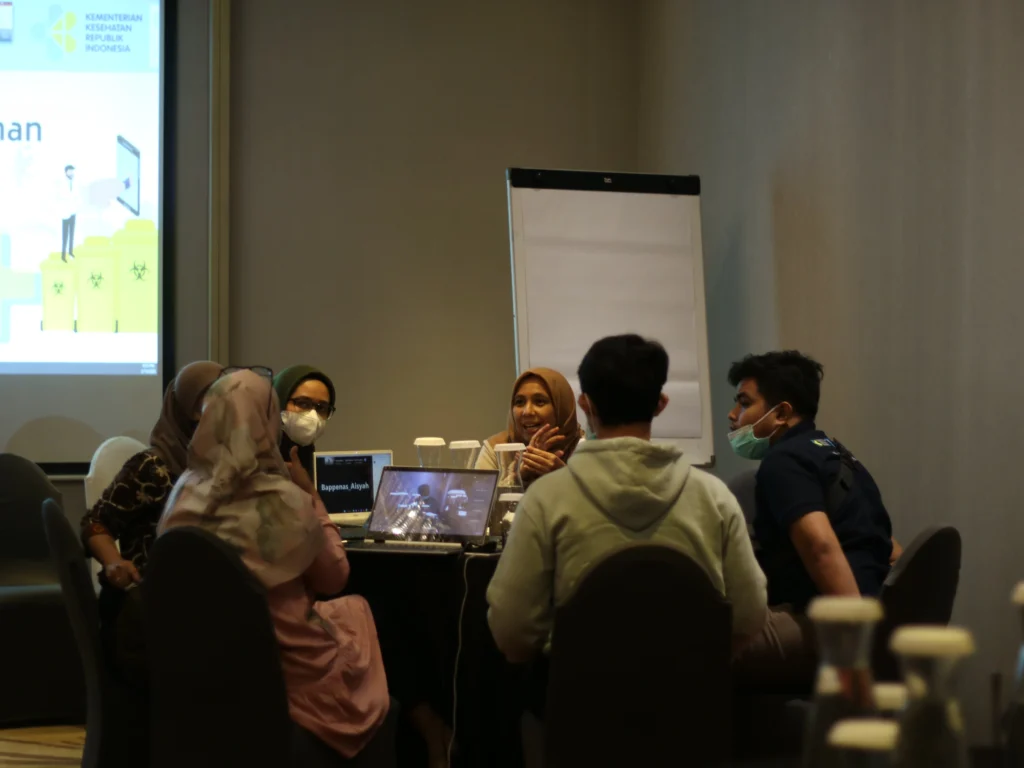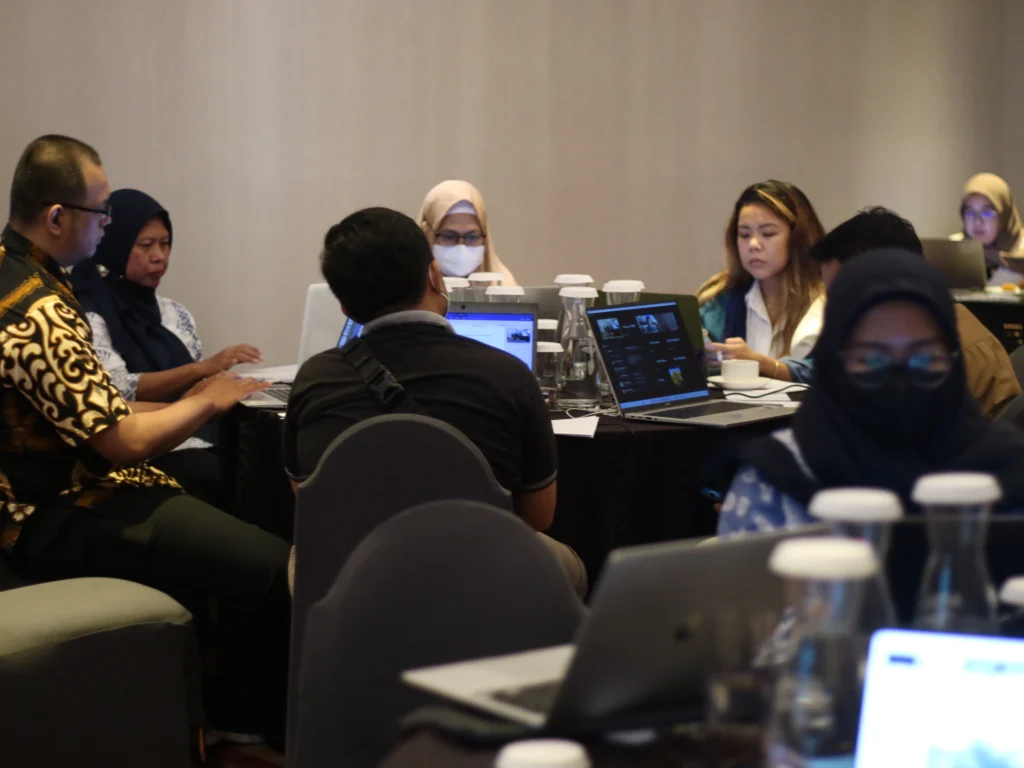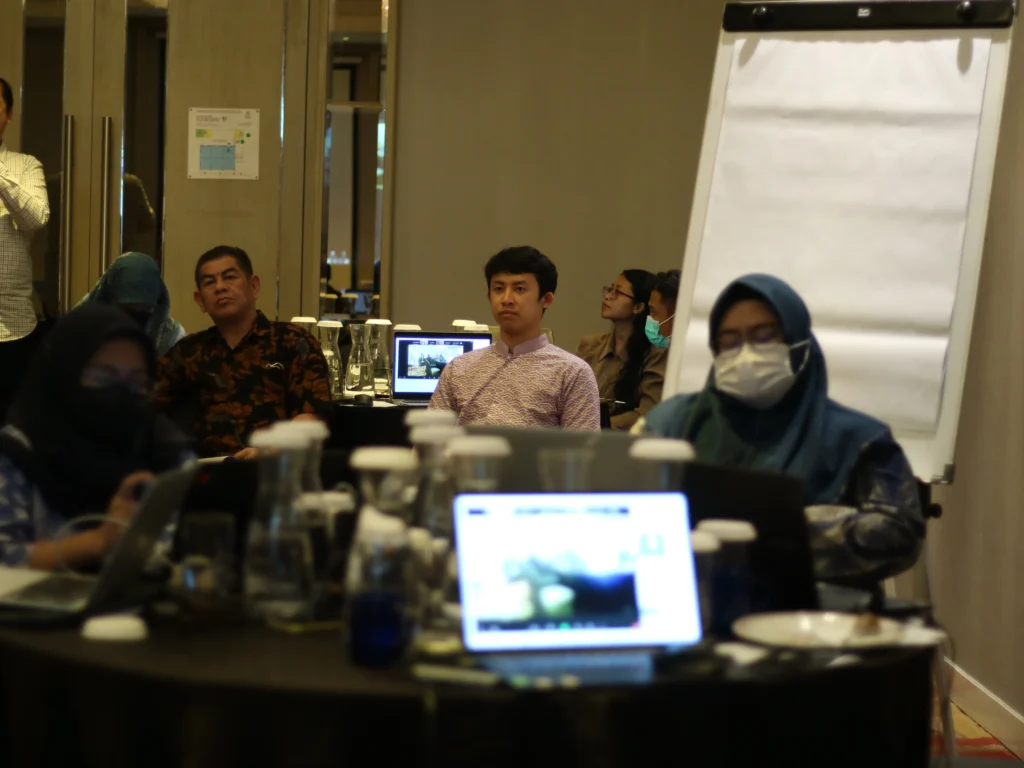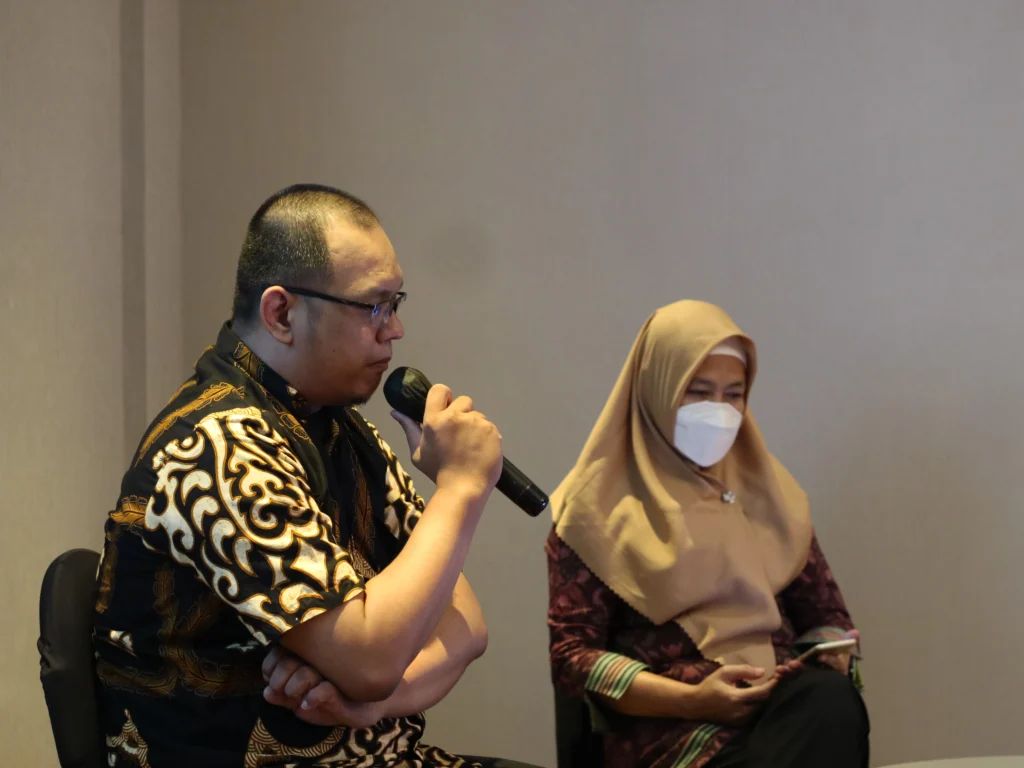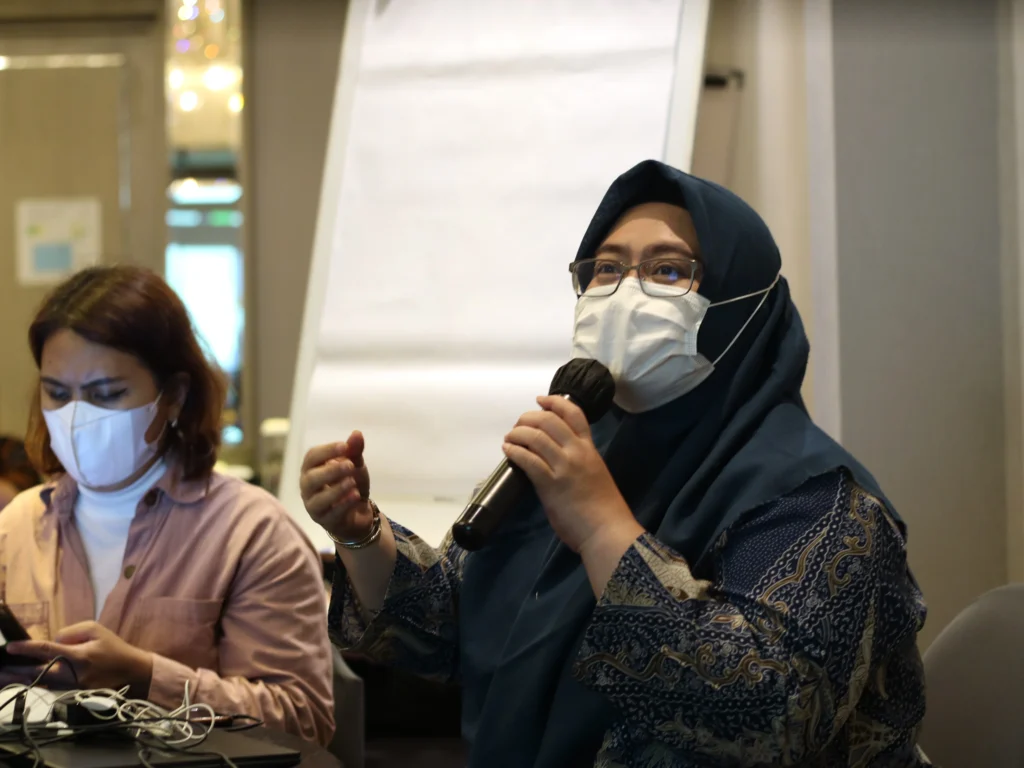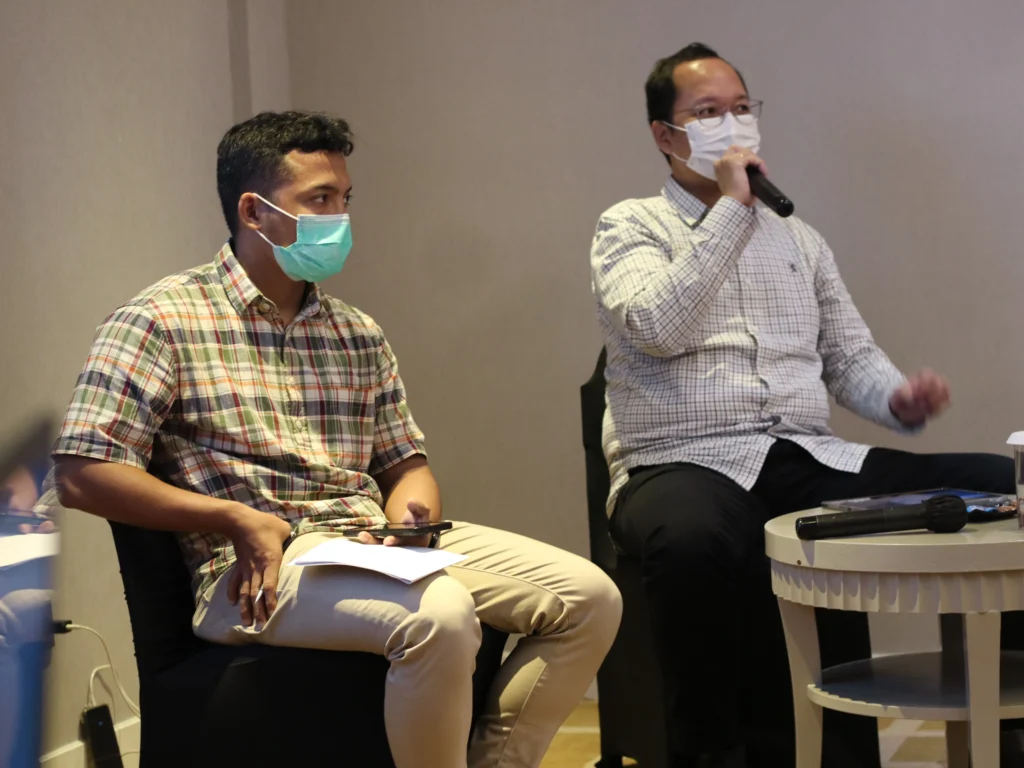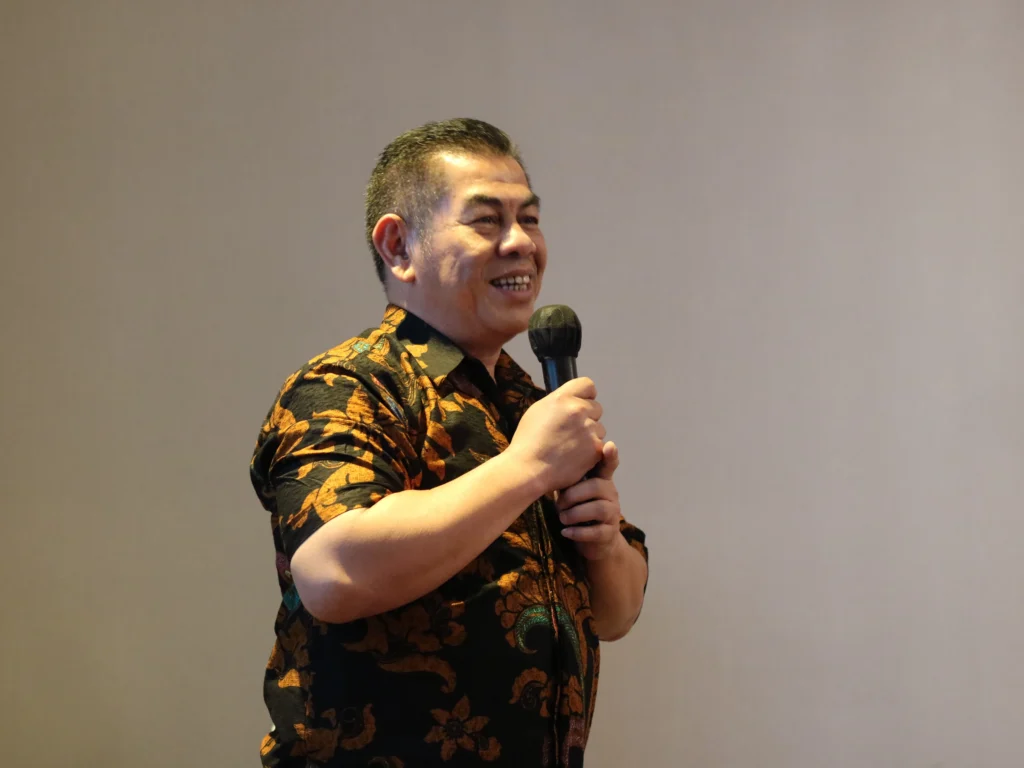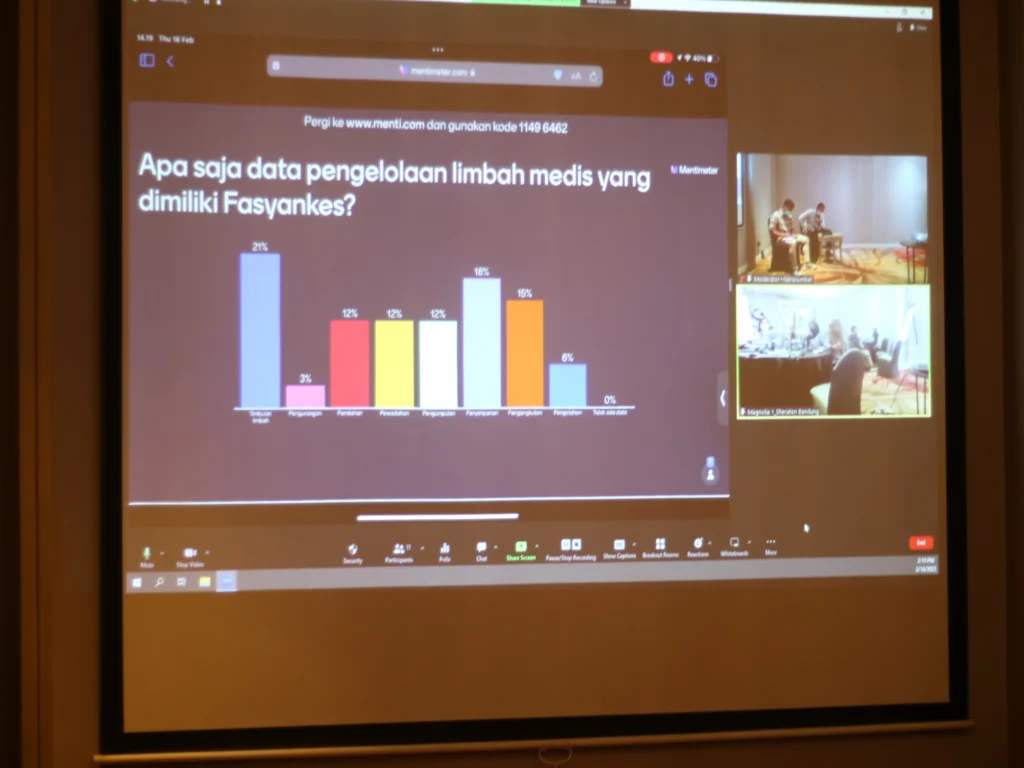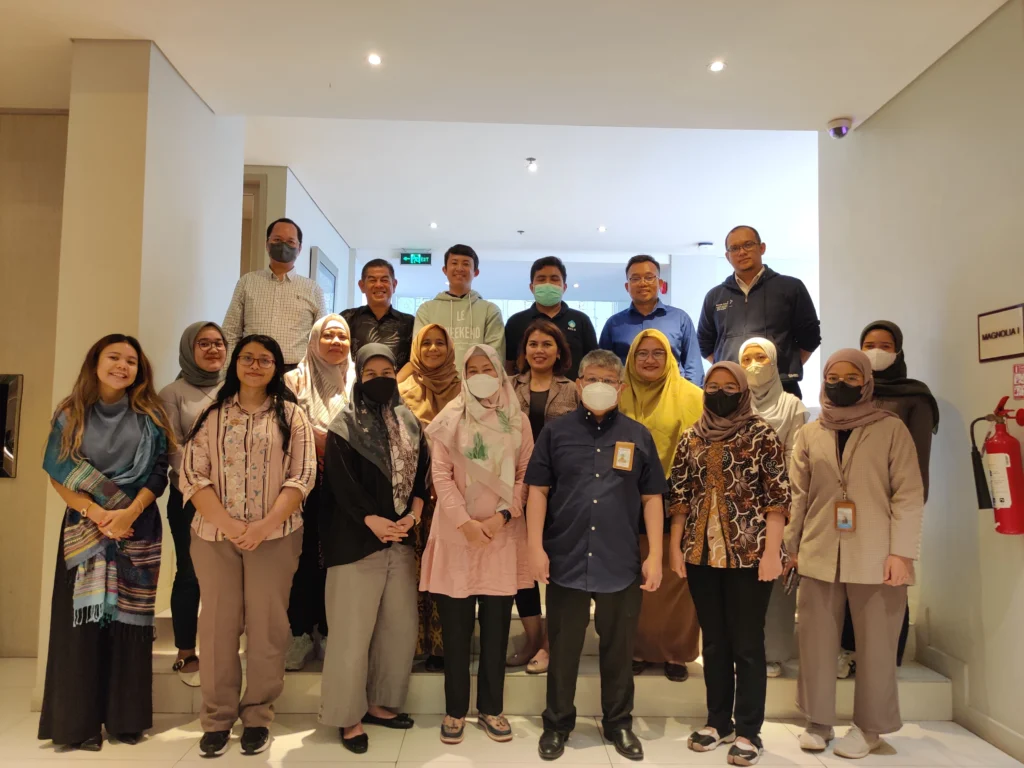
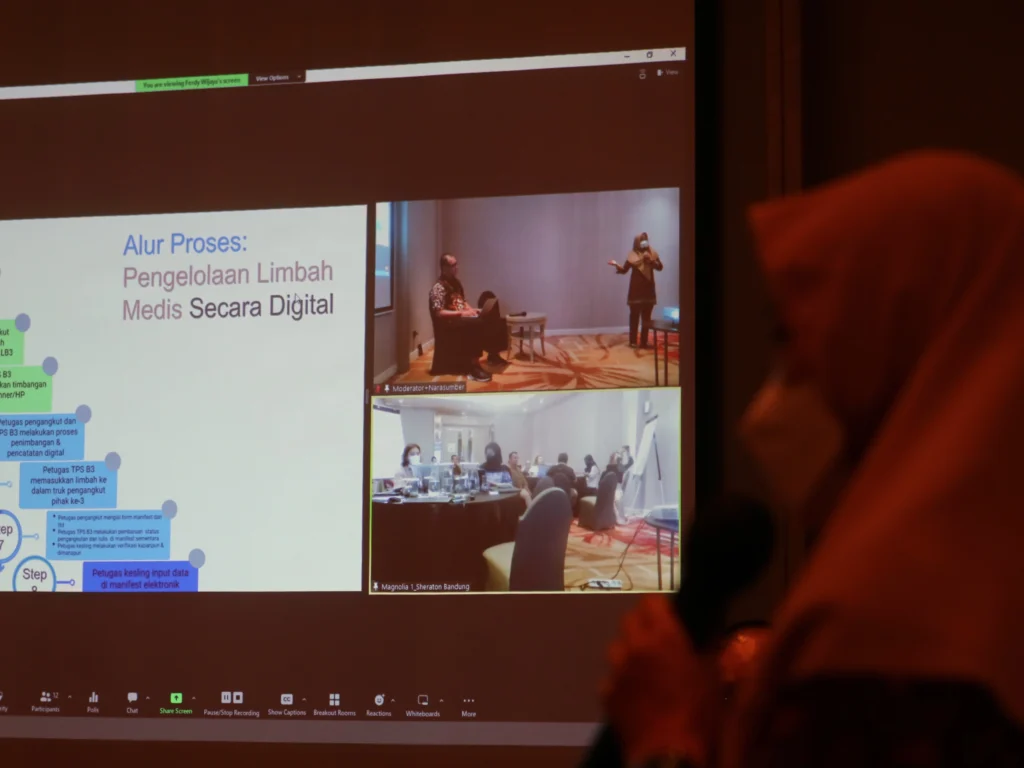
The Indonesian Ministry of Health (MoH) and the United Nations Development Program (UNDP) recently developed the ME-SMILE Technical Guidelines aimed at a more accurate, accountable, and transparent implementation of the digitalization of medical waste management. During a workshop held on 15-16 February 2023, a number of important issues related to medical waste management such as policy analysis, infrastructure and systems’ interoperability were discussed with main stakeholders including representatives of the Ministry of National Development Planning/Bappenas, the Coordinating Ministry for Economic Affairs, the Ministry of Environment and Forestry (KLHK), the Provincial Health Office of the DKI Jakarta, hospitals and community health centers.
Since July 2022, MoH and UNDP Indonesia have successfully piloted the ME-SMILE – a digital tracking system for medical waste management at Dr. Sardjito Yogyakarta, Tarakan Jakarta Hospital, and Setiabudi Jakarta Health Center. The ME-SMILE testing/pilot in those three health facilities has shown significant benefits for medical waste management, such as data accuracy and reporting, time and resource efficiency, minimizing the risk of contamination of infectious waste, and reducing harmful impacts on health and the environment.
Seeing the advantages of the ME-SMILE system, UNDP and MoH have agreed to scale up the implementation of ME-SMILE in 2023. The first phase of ME-SMILE expansion will involve 30 type A and B hospitals in four provinces, including DKI Jakarta, DI Yogyakarta, Central Java, and North Sulawesi. The development of ME-SMILE Technical Guidelines thus becomes crucial to provide practical guidelines for health facilities.
Donal Simanjuntak, SKM, MKM, the Interim Director of Environmental Health at the Ministry of Health said, “Close coordination is needed in preparing the technical guidelines as an effort to ensure the utilization and practical instructions in applying the ME-SMILE system at health facilities.â€
The Ministry of Environment and Forestry reported that medical waste in Indonesia reached 18,460 tonnes in July 2021 amid the COVID-19 pandemic, with an estimated average waste generation of around 1.71 kg/patient per day. The Coordinating Ministry for Economic Affairs views the problem of medical waste has not been exposed and managed properly so it can potentially cause public health problems. Therefore, the Directorate of Hazardous Waste Management at the Ministry of Environment and Forestry together with the Directorate of Environmental Health at the Ministry of Health and UNDP Indonesia are expected to have an integrated system to manage medical waste in a more effective and sustainable way.
The System Administrator of RSUD Tarakan Jakarta, Ferdy Wijaya added, “In order to simplify the daily medical waste weighing and reporting process, we also hope that there will be systems’ interoperability between the ME-SMILE application and Festronik, SIRAJA (developed by KLHK), Sikelim (developed by MoH), and an agreement with the waste transporter to be in place.â€
During the coordination for ME-SMILE technical guidelines, the stakeholders agreed to include several essential components in the document such as the importance of digitizing medical waste management in Indonesia, the use of ME-SMILE for data accountability and formulation of appropriate programs, the infrastructure needed by health facilities, as well as steps to use the ME-SMILE mobile and website-based system.
Through the ME-SMILE scale-up in 30 hospitals, the waste management systems’ interoperability will continue to be carried out along with socialization of the ME-SMILE technical guidelines for health facilities. Meanwhile, the beta testing phase is also expected to provide inputs to the Ministry of Health and the Ministry of Environment and Forestry, so that the system is ready to be used nationwide.

